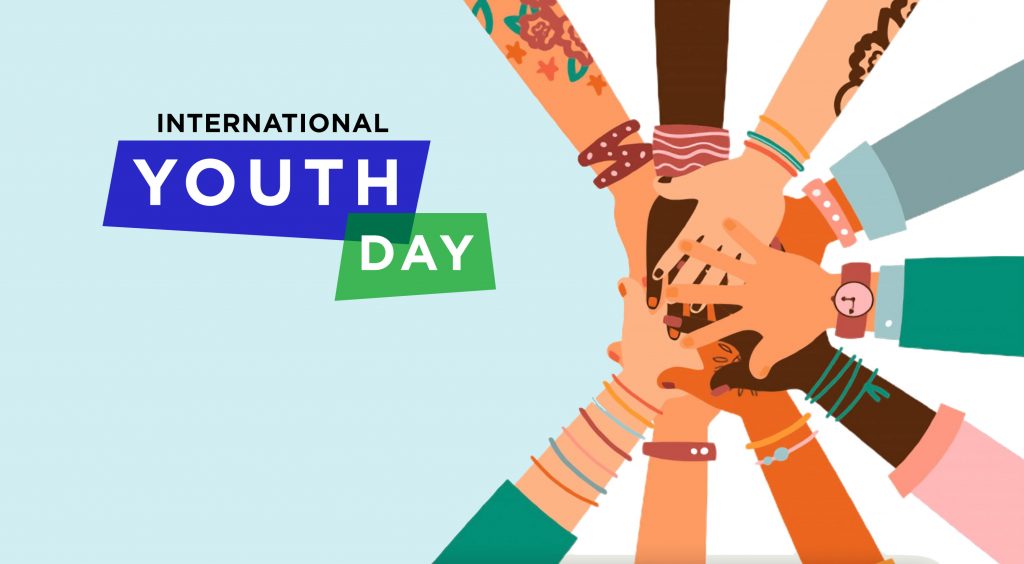Previous Article
Celebrating National CBD Day on August 8th
On August 8th, we come together to celebrate National CBD Day, a day dedicated to recognizing the potential benefits of cannabidiol (CBD) and its contribution to health and wellness. CBD, a non-intoxicating compound derived from the cannabis plant, has gained significant attention in recent years for its promising therapeutic properties. Let's explore the world of CBD as we celebrate this special day, explore its potential benefits, and learn why it has turned into a ray of hope for people looking for alternative health options.
View All CBD Products
Understanding CBD
Cannabidiol, or CBD, is one of the many cannabinoids found in the cannabis plant. Unlike its partner tetrahydrocannabinol (THC), CBD does not produce an intoxicating effect, meaning it does not induce a “high”.
The Potential Benefits of CBD
Stress relief: In our fast-paced world, stress has become an inevitable part of life. CBD has shown promise in alleviating stress and anxiety, promoting a sense of calm and relaxation without the adverse effects associated with certain pharmaceutical options.
Pain management: For individuals suffering from chronic pain conditions, CBD may provide an alternative. Studies suggest that CBD’s anti-inflammatory properties can help reduce pain and discomfort associated with various ailments.
Mental health support: CBD’s potential anxiolytic properties can be beneficial for individuals dealing with anxiety disorders and other mental health challenges.
Support for brain health: Emerging research suggests that CBD may have neuroprotective properties, making it a subject of interest in studies related to neurodegenerative diseases such as dementia.
National CBD Day provides us with an opportunity to celebrate the potential benefits of CBD and its contribution to health and research. As we embrace this day, let us continue to educate ourselves and others about the responsible use of CBD. Remember, while CBD holds promise as a health and wellness tool, it is essential to conduct thorough research, seek guidance from healthcare professionals, and use products from reputable sources. Happy National CBD Day!
References
Aychman, M. M., Goldman, D. L., & Kaplan, J. S. (2023). Cannabidiol’s neuroprotective properties and potential treatment of traumatic brain injuries. Frontiers in Neurology, 14. Retrieved from https://www.frontiersin.org/articles/10.3389/fneur.2023.1087011/full
Bell, A. D., MacCallum, C. A., Margolese, S., Walsh, Z., Wright, P., Daeninck, P. J., Mandarino, E., Lacasse, G., Jagpaul Kaur Deol, Lauren de Freitas, Michelle St Pierre, Belle-Isle, L., Gagnon, M., Bevan, S., Sanchez, T., Arlt, S., Monahan-Ellison, M., O’Hara, J., Boivin, M., & Costiniuk, C. T. (2023). Clinical Practice Guidelines for Cannabis and Cannabinoid-Based Medicines in the Management of Chronic Pain and Co-Occurring Conditions. https://doi.org/10.1089/can.2021.0156
Scuderi, C., Steardo, L., & Esposito, G. (2013). Cannabidiol Promotes Amyloid Precursor Protein Ubiquitination and Reduction of Beta Amyloid Expression in SHSY5YAPP+Cells Through PPARγ Involvement. Phytotherapy Research, 28(7), 1007–1013. https://doi.org/10.1002/ptr.5095
Zuardi AW, Rodrigues NP, Silva AL, Bernardo SA, Hallak JEC, Guimarães FS, et al. . Inverted U-shaped dose-response curve of the anxiolytic effect of cannabidiol during public speaking in real life. Front Pharmacol. (2017) 8:259. 10.3389/fphar.2017.00259
Next Article
'Keep Workers Working’ with Medicinal Cannabis: Unlocking the Potential of Paid Health Benefits!
Did you know one in five people suffer from chronic pain, which leaves many unable to work?
Chronic pain is causing a significant burden in Canada. In 2019, the total cost of chronic pain reached over $40 billion, including health care costs and lost productivity. Health Canada projects that between 2019 and 2030, the number of people with chronic pain will rise by 17.5%, primarily because of population growth and aging. During this period, an increase in costs by 36% is anticipated.1
People living with pain in Canada face barriers to accessing care, employment support, and other essential services. Medicinal cannabis, when used responsibly and under medical supervision, has shown promise in enhancing the quality of life and fostering overall well-being.2 By offering this as a paid health benefit, a supportive environment is created where employees can focus on their professional endeavours minimizing disruptions stemming from health concerns.
At Starseed, our aim is to 'Keep Workers Working,' which involves raising awareness about the potential benefits of medicinal cannabis to manage certain chronic conditions and enhance overall health. With the primary goal of reducing stigma, promoting education, and advocating for accessible medicinal cannabis.
Integrating medicinal cannabis into a Company's health benefit plan provides employees with accessible and affordable treatment options. Recent research has also suggested access to medicinal cannabis through employee health benefits can have a positive impact on workplace attendance and productivity.3 When employees have access to effective pain management and stress relief, they are more likely to stay engaged, motivated, and committed to their roles, ultimately contributing to a more vibrant and successful work environment.
What actions can be taken? As we champion medicinal cannabis coverage, let's work together with policymakers, HR professionals, and healthcare experts to ensure a progressive approach to medicinal cannabis coverage.
At Starseed, we are committed to offering in-depth education about our medicinal cannabis program, with a responsible approach to its integration within a health benefit plan. For more information, please feel free to reach out to partners@starseed.com.
Together, we can unlock the potential of medicinal cannabis to ‘Keep Workers Working’ and build a healthier, more resilient workforce for the future.
References:
1 Canada, H. (2021, May 5). Canadian Pain Task Force Report: March 2021. Www.canada.ca. https://www.canada.ca/en/health-canada/corporate/about-health-canada/public-engagement/external-advisory-bodies/canadian-pain-task-force/report-2021.html
2 Arkell, T. R., Downey, L. A., Hayley, A. C., & Roth, S. (2023). Assessment of Medical Cannabis and Health-Related Quality of Life. JAMA Network Open, 6(5), e2312522. https://doi.org/10.1001/jamanetworkopen.2023.12522
3 Nicholas, L. H., & Maclean, J. C. (2019). THE EFFECT OF MEDICAL MARIJUANA LAWS ON THE HEALTH AND LABOR SUPPLY OF OLDER ADULTS: EVIDENCE FROM THE HEALTH AND RETIREMENT STUDY. Journal of Policy Analysis and Management. https://doi.org/10.1002/pam.22122





